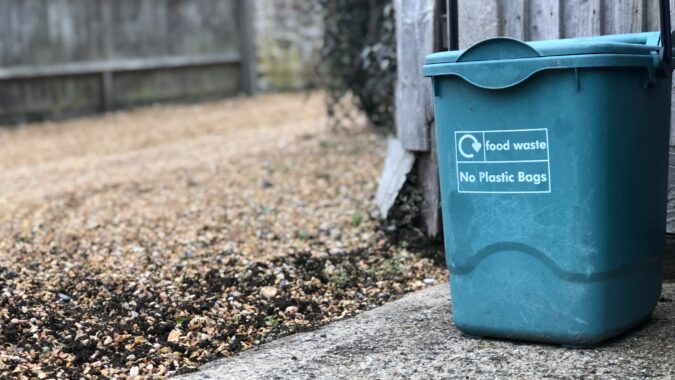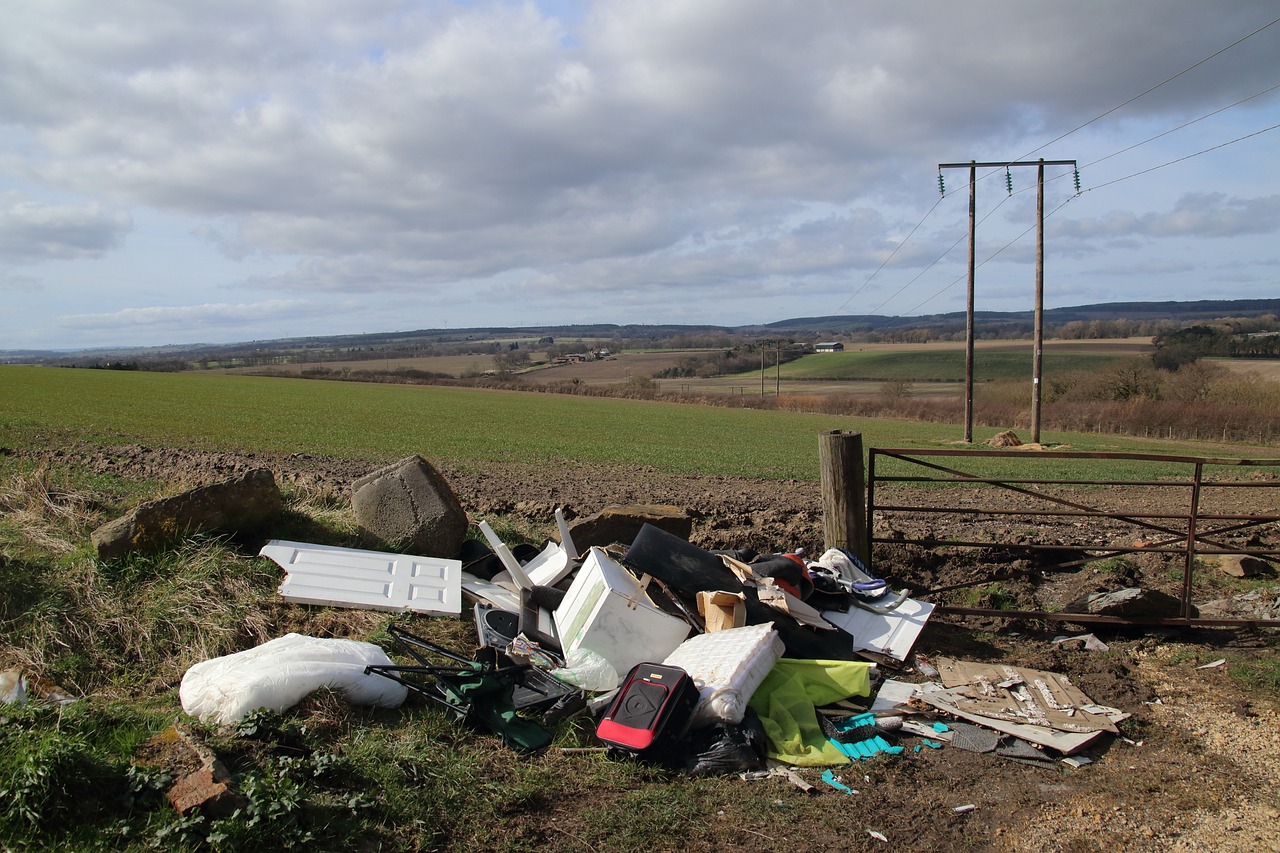What are Defra’s Simpler Recycling Plans?
The Department for Environment, Food & Rural Affairs (Defra) revealed reforms to bin collections and the UK’s waste system at the end of October 2023. These proposals have been dubbed ‘Simpler Recycling.’ They aim to increase, improve, and standardise recycling and waste collections by local authorities across the country for households and businesses.
This should get rid of the current ‘postcode lottery’ where homes in some areas of the country can recycle materials like glass in their domestic recycling bins, while others can’t. The plans also aim to crack down on waste crime, which costs England £1 billion a year, through mandatory digital waste tracking.
Businesses in England with 10 or more employees must separate dry recyclables into individual containers and arrange separate food waste collections by the end of March 2025.
For most other proposed changes there’s a deadline of the end of March 2026, so there’s plenty of time to get to grips with them. Understand what Defra’s simpler recycling plans are and how they could affect your business or household with these answers to your common questions.
Note: Simpler Recycling reforms are not currently in force and the proposed changes and timeline could change. Below is all the current information and expected dates about the plans available. You can find more information on the UK government website.

What will change under Defra’s
simpler recycling reforms?
Defra’s simpler recycling reforms will affect households, businesses, and waste carriers. It will change bin collections for households to ensure more materials are recycled and that all homes in England receive the same waste collection services. You should also be able to recycle the same materials at work as you can at home under the proposed reforms.
The main changes that Defra’s simpler recycling is set to introduce are:
- Every local authority in England will collect four containers from households in their area (including flats). These will be for residual (non-recyclable) waste, food waste (mixed with garden waste if appropriate), paper and card, and all other dry recyclable materials (plastic, metal and glass).
- Most UK households will receive weekly food waste collections from their local authority.
- Charges can continue to be applied by local authorities for garden waste collections.
- Plastic film will be collected as part of the plastic waste stream, but the deadline is a year later by 31 March 2027.
- Waste collectors can collect combined dry recyclables so there’s no need for seven bins per household.
- Businesses must arrange separate food waste collections and separate paper and card and separate dry recyclables (glass, plastic, and metal) by the end of March 2025 for businesses with more than 10 employees. This includes schools and hospitals – garden waste and plastic film are exempt initially.
- Companies in England with fewer than 10 employees have until the end of March 2027 to comply with the new regulations.
- A central digital system for waste tracking will be introduced for waste carriers, operators, and brokers.
How will Defra’s simpler recycling
affect businesses?
Businesses will need to arrange collections and recycling of all food waste, paper and cardboard, and dry recycling (glass, plastic, and metals) they produce by licensed waste carriers. All businesses, schools, hospitals, and other ‘non-household municipal premises in England’ must arrange collection for recycling or composting of the same recyclable waste streams as households under Defra’s new plans – excluding garden waste.
These arrangements must be in place by the end of March 2025 for businesses in England with 10 or more full-time employees. Using commercial waste collection services and licensed waste carriers should ensure compliance with the new plans. You could use separate bins for each recycling stream or dry mixed recycling bin collections to combine plastic and metals for ease. Paper and card must be collected separately from other dry recyclables.
The government plans to hold a consultation about the definition of ‘non-household municipal premises.’ Depending on the outcome of this it could mean places of worship, prisons, charity shops, and residential hostels are included and will also need to arrange recycling collections in line with the new plans.
A few key areas of the Separation of Waste (England) (No. 2) Regulations 2024 are also still under review by the government. These could affect how recyclable materials are collected and which can be mixed and the deadline for micro-businesses, which may be subject to change.

Who needs to prepare for
simpler recycling?
All businesses will need to prepare for the changes that Defra’s simpler recycling scheme is set to introduce. So will non-household premises like hospitals, schools, and prisons. However, the deadlines to comply with the new regulations depend on the size of the organisation:
- Businesses with 10 or more full-time employees – by 31 March 2025 any business or non-household premises with at least 10 full-time employees must arrange separate food waste and dry recycling collections. This is regardless of how many employees are on site at once – if you have two locations with five full-time employees at each, you must still comply with the Simpler Recycling regulations, as you’ll have 10 employees in total.
- Businesses with fewer than 10 full-time employees – by 31 March 2027 any business or non-household premises with fewer than 10 full-time employees must arrange separate food waste and dry recycling collections.
- Local authorities – have until 31 March 2026 to implement the requirements of simpler recycling for all residents.
When will simpler recycling happen?
The bulk of Defra’s simpler recycling plans aim to be in place by the end of March 2026. However, collections of core dry recycling materials from businesses, schools, and hospitals with more than 10 employees should be in force earlier by March 2025. Collection of plastic film is also set for later, presumably due to the difficulty of recycling such material.
The main three dates for the changes to bin collections are:
- 31 March 2025 – core dry recycling and food waste should be collected separately from businesses, schools, and hospitals with 10 or more full-time employees (garden waste and plastic film are exempt).
- 31 March 2026 – local authorities will provide weekly food waste collections and include all core recycling collections for households (glass, metal, plastic, paper and card, and garden waste).
- 31 March 2027 – plastic film will be removed as part of the plastic waste stream from households and businesses. Dry recycling and food waste should be collected separately from businesses, schools, and hospitals with fewer than 10 full-time employees.
Why are changes to waste
collections being introduced?
There are three main reasons why Defra is set to update the current waste system – to improve recycling rates, simplify waste management, and crack down on waste crime.
Improve recycling rates
Household recycling rates in England have grown from 11% in 2001 to 42% in 2022. However, they’ve stagnated and missed the target of reaching an average of 50% by 2020. Ensuring all domestic waste collections include the seven core recycling streams should improve recycling rates towards the UK’s household waste recycling target of 65% by 2035.
Simplify waste management
Applying Defra’s simpler recycling scheme across all households and businesses will mean the same materials can be recycled at home or work anywhere in the UK. This removes the current ‘postcode lottery’ about what can be recycled where and avoids any confusion. It should encourage manufacturers to design sustainable packaging that’s recyclable anywhere in the UK, helping boost recycling rates.
Crack down on waste crime
Around 18% of waste in England might be managed illegally according to the Environment Agency. This can have a hugely negative impact on the environment and businesses and costs the economy in England £1 billion a year. Reforming the licensing system for waste carriers, brokers, and dealers with mandatory digital waste tracking aims to centralise reporting and reduce illegal waste activity and its negative impact.
How will the changes
affect waste operators?
There are plans to overhaul the system that tracks how waste is handled and the ways data is collected with mandatory waste tracking. The exact details are yet to be released but it should improve detection of waste crime by regulators. New systems will record information from the point waste is produced to when it’s disposed of.
This provides regulators with all the information and evidence required to hold waste criminals to account. An increase in background checks for organisations and individuals who move commercial waste is set to be introduced too. These should make it easier for regulators to identify rogue operators and make it harder for unlicensed waste carriers to get work.
Are there any concerns or
problems with the plans?
Most of the reaction has been positive but a few concerns have been raised. An announcement was initially promised by the end of 2022. With nearly a year’s delay, it wouldn’t be a surprise if deadlines are pushed back again and could make implementation challenging due to this initial delay.
The commingling of materials was also highlighted as disappointing. However, updates to Simpler Recycling plans mean paper and card will now be collected separately to reduce cross-contamination and improve the quality of collected material. It’s hoped that simplifying the number of bins should increase recycling participation levels.
Greater detail on how simpler recycling will work with the emerging extended producer responsibility (EPR) regime for packaging is also required. And there are also worries about whether councils and local authorities will have the bins, vehicles, and systems in place in time to deal with the proposals.
You can prepare for these changes in advance and increase your commercial recycling with Business Waste. Get a free quote for any type of waste collection anywhere in the UK today – call 0800 211 8390 or contact us online today.
Have your waste collected
Get a fast FREE quote for your waste collection 0800 211 83 90
- Free quote within 1 hr
- Any type of waste
- FREE bins and delivery
- We cover all of the UK
